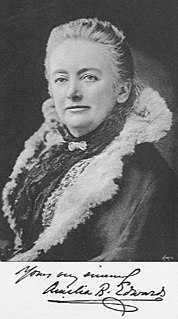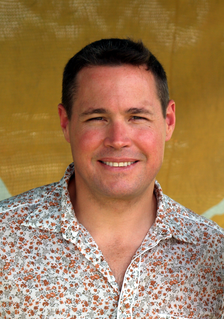Цитата Дэвида Кваммена
Мы стряхиваем свободные вирусы и выбиваем их из их естественных экологических ограничений, из мест, где они не очень многочисленны и имеют конкуренцию даже внутри одного животного. Мы вводим их в новую, богатую среду обитания, называемую человеческим населением, где они могут процветать более обильно и доставлять больше проблем.
Связанные цитаты
Мои картины сложны, и я тоже. Когда я пишу почти символически, существует более ограничивающая разница в принятии, в то время как я могу быть еще более сложным на фотографиях, и люди обычно могут принять их в рамках своих собственных ограничений или ограничений. отсутствие ограничений – нет словарного значения… они могут найти фотографическое изображение и позволить ему сбить их с толку.
Демографический взрыв — это экологический феномен перемещения. Пока мы не решим эту экологическую проблему переселения людей — построить огромные плотины, построить автомагистрали, отнять у людей то, что им нужно для выживания, — мы будем продолжать вкачивать все больше и больше денег в программы народонаселения. У нас будет все больше и больше принудительных и насильственных методов, с помощью которых женские тела будут рассматриваться как экспериментальная площадка для новых противозачаточных средств. И все же у нас не будет решения проблемы чисел.
О некоторых очень старых местах, как и о некоторых очень старых книгах, можно сказать, что им суждено вечно оставаться новыми. Чем ближе мы приближаемся к ним, тем более далекими они кажутся: чем больше мы их изучаем, тем больше нам еще предстоит узнать. Время увеличивает, а не уменьшает их вечную новизну; и можно с уверенностью предсказать, что нашим потомкам через тысячу лет они будут еще более очаровательны, чем мы сами. Это относится ко многим древним землям, но не к местам. так верно, как в Египте.
Если вы посмотрите, как материалы используются в экологической системе, вы заметите, что отходов нет. Отходы одного организма становятся пищей для другого, и все перерабатывается в экологической системе, тогда как в нашей созданной человеком среде существует пропускная система. Мы что-то используем, а потом выбрасываем… Мы должны подражать природе и пытаться повторно использовать все, что мы делаем как люди, или перерабатывать это — когда мы не можем повторно использовать или перерабатывать это, мы должны попытаться реинтегрировать их обратно в окружающую среду. окружающая среда.
Я думаю, что мелкие животные могут легче спастись от многих стихийных бедствий. У них просто больше мест, где они могут спрятаться, и больше способов найти безопасное место обитания. Итак, это означает, что крысы созданы, чтобы править Землей, но большинство из нас уже знали об этом. Теперь вы знаете, почему.
У нас нет бедняков ... Основная масса нашего [Соединенных Штатов] населения состоит из рабочих; наши богатые, которые могут жить без труда, физического или профессионального, немногочисленны и имеют умеренное богатство. Большинство рабочего класса владеет собственностью, обрабатывает свои собственные земли, имеет семьи и, благодаря спросу на свой труд, может взимать с богатых и компетентных такие цены, которые позволяют им обильно питаться, одеваться сверх приличий, работать. умеренно и растить свои семьи. ... Может ли какое-либо состояние общества быть более желанным, чем это?
Снижение изменчивости небольших популяций не всегда связано со случайной потерей генов, а иногда с тем, что вся популяция была начата одной парой или одной оплодотворенной самкой. Эти «основатели» популяции несли с собой лишь очень небольшую часть изменчивости родительской популяции. Этот принцип «основателя» иногда объясняет даже однородность довольно крупных популяций, особенно если они хорошо изолированы и находятся вблизи границ ареала вида.
Жизнь на планете гомогенизируется за счет увеличения численности населения и частого и быстрого перемещения людей и товаров, которые несут с собой инвазивные организмы. Эти инвазивные виды часто процветают в своих новых экосистемах, потому что, как и шерстистые адельгиды, они сбежали от своих хищников.
Многие ученые утверждают, что сейчас мы находимся в так называемом вымирании, и это вызвано этим идеальным штормом вымирания: изменением климата, потерей среды обитания, загрязнением, неустойчивой эксплуатацией видов и ресурсов среды обитания и, конечно же, взрывом человеческой популяции. Все эти факторы работают вместе и сговариваются, чтобы каждые полчаса привести к исчезновению вида на нашей планете.
Оно пришло ко мне не в виде внезапного прозрения, а с постепенной уверенностью, ощущением смысла, как ощущение места. Когда вы отдаете себя местам, они возвращают вам себя; чем больше их узнаешь, тем больше сеешь в них невидимый урожай воспоминаний и ассоциаций, которые будут ждать тебя, когда ты вернешься, а новые места предлагают новые мысли, новые возможности. Изучение мира — один из лучших способов изучения разума, и ходьба проходит по обоим направлениям.





































